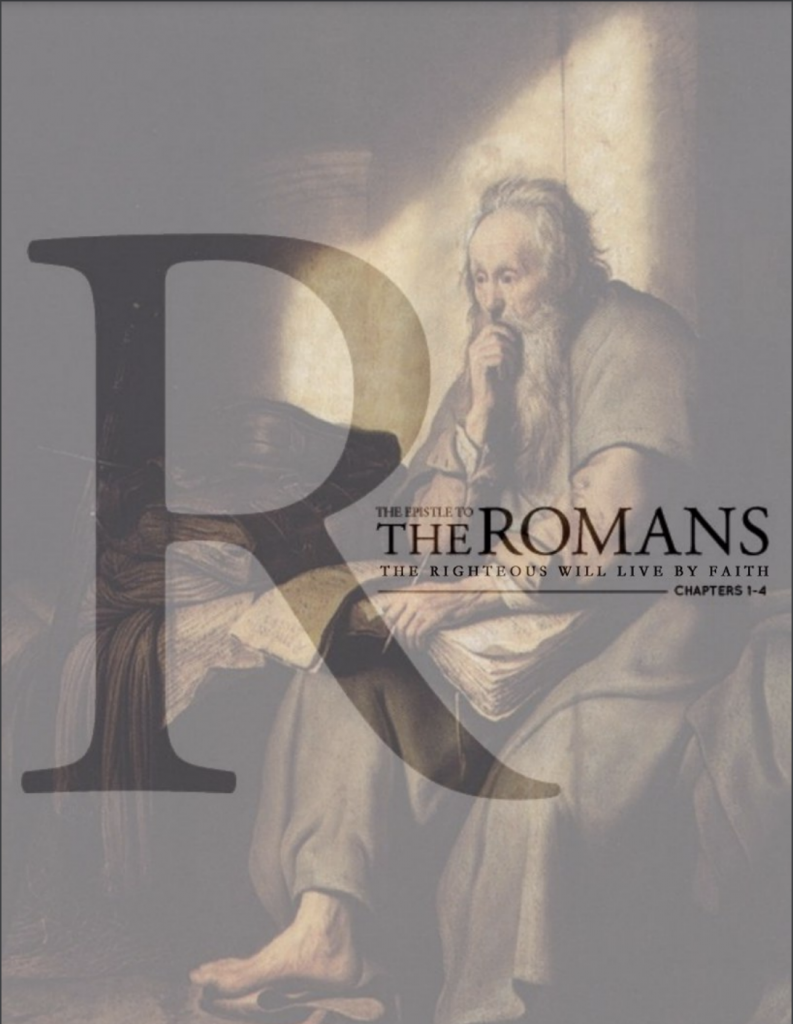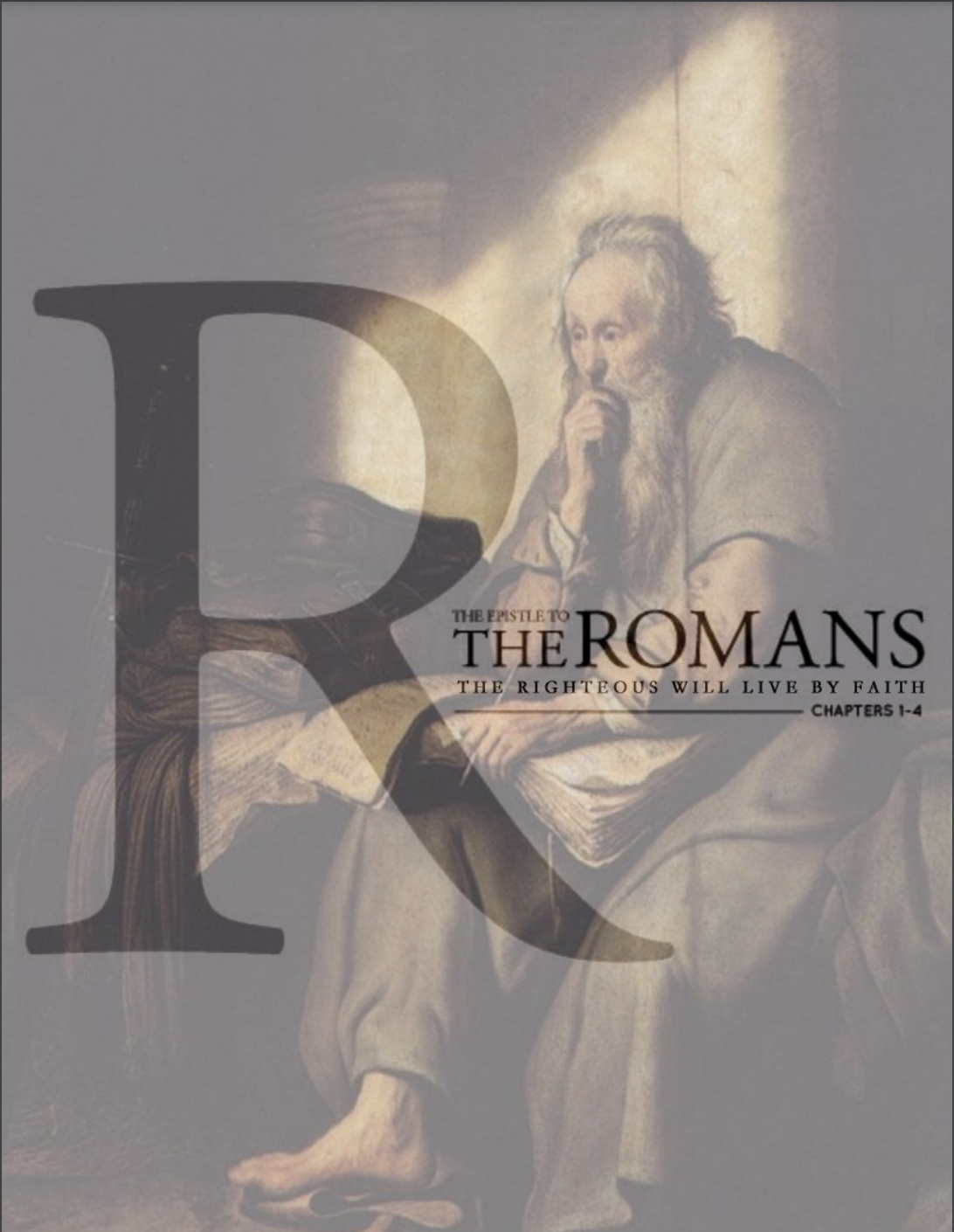
[Romans Study 2-1]
Introduction II: Study Of Romans
Time, Place, And Circumstances Of Writing
Paul wrote this letter about a quarter of a century after the crucifixion of Christ–the year 58 A. D.22 At the time he was the house guest of a man named Gaius, a wealthy citizen of the Grecian city of Corinth.23 Thanks to Gaius, Paul was freed from material necessity, for a brief period, during this period of writing.
The actual circumstances of the writing of the Epistle are described in 15:22-32: Paul has now completed his work in Asia and Greece (15:23), and is planning to mount a mission to Spain and, on the way, to visit Rome. But first he must ‘back-track’ to Jerusalem, to deliver a relief fund preciously raised by Macedonia and Achaia for the ‘saints’ there (the impoverished Jewish Christian community in the Holy City).24
All the roads branched off from the great capital of Rome. Paul’s eyes had long been fixed on this city.
“I do not want you to be unaware, brothers, that I planned many times to come to you (but have been prevented from doing so until now)…” (1:13)
Paul experienced no sudden impulse, but rather it was his long-growing desire, crystallized into conviction by the power of the Spirit, that ‘he must see Rome.’25
After all this had happened, Paul decided to go to Jerusalem, passing through Macedonia and Achaia. “After I have been there,” he said, “I must visit Rome also.” (Acts 19:21)
Though he longed to go to Rome, and furthermore Spain, even a day earlier, he is now compelled to go back to Jerusalem, the mother church. “Now, however, I am on my way to Jerusalem in the service of the saints there.” (15:25)
When he was retreating back to Jerusalem, he was not unaware of the fact that there were a number of perils and enemies threatening his life there; he would not probably move along with his mission routes.26 Consequently, Paul was compelled to write this letter. If he could not have preached in Rome, the Roman Christians would nevertheless hear his Gospel read to them from his own living word.
Romans was written as if it were Paul’s last will and testament. Last will—is this too heavy a sentiment? This is somebody’s very last expression of words before greeting death. Paul may have thought: ‘God has let me experience and feel so many inexpressible things. He has opened up His profound truth to this one undeserving person. As I set out for Jerusalem, this may be the last of all my journeys, therefore I should not leave obscured the mystery of God.’
Besides, there were many heretical teachings, with various faith-related conflicts, with clashes between Jewish Christians, Gentile Christians, and confused young believers in Rome.
Therefore, Paul poured out all his passion into this Epistle, testifying the saving power of God, the truth, the Gospel, the essence of Christianity.
How To Study Romans, The Letter Of The Holy Spirit And Love
When we read Paul’s letters, we are not reading things which were meant to be academic exercises theological treatises, but things which are human documents written by a friend to his friends.27
Paul did not pen the letter Romans himself; he dictated to a secretary who transcribed for him: “I, Tertius, who wrote down this letter, greet you in the Lord.” (16:22)
We can see the generosity of Paul here.“Tertius, my secretary, please record your own name here.” The name of this scribe is historically included in this great Epistle.
What does it mean that a scribe wrote down the dictated letter to the Romans?
It means Paul did not sit quietly at a desk, carefully polishing each sentence as he wrote. We must think of him as striding up and down in a little room, pouring forth a torrent of words, while his secretary raced to record them down. When Paul composed his letters, he had his mind set upon those to whom he was writing, and he was opening his heart to them with words that poured out one over another, each carrying Paul’s desire and eagerness to instruct. Paul’s letters are not precise, academic documents written in the seclusion of a scholar’s study; they are living, vital, torrents of words poured straight from his heart to the heart of friends far away for whom he wrote.28
Therefore, Romans is a letter of the Holy Spirit in which Paul testified the truth of the Gospel that he witnessed, that he felt in his heart, and realized, as the Spirit inspired him. This letter is Paul’s confession and fiery testimony of his faith and his passion for the mission.
As William Barclay puts it, “[In Romans] he opened his mind and heart to the folk he loved so much; and in them, to this day, we can see that great mind grappling with the problems of the Early Church, and we can feel that great heart throbbing with love for men, even when they were misguided and mistaken.”29
To sum it up, when we study Romans, we should not try to academically analyze it word by word, but simply follow this passionate, burning heart of Paul; his heart was burning with the love of God and of the people in Rome. Then, this letter of Holy Spirit will also ignite our hearts with the fire of love and grace.
The Framework Of Romans
Romans is at once a very complicated and a very carefully constructed letter. It will therefore help us to find our way through it if we have in our minds an idea of the scheme and frame-work round which it is written. It falls into four definite divisions.
(i) Chapters 1-8, which deal with the problem of righteousness.
(ii) Chapters 9-11, which deal with the problem of the Jews, the Chosen People.
(iii) Chapters 12-15, which deal with practical questions of life and living.
(iv) Chapter 16, which is a letter of introduction for Phoebe, and a list of final personal greetings.
Paul has supplied the material and pointed the way forward for the whole of Christian theology and Christian thought with these sixteen chapters. Paul expresses these words in a way that no one before could express it, and that no one after him would. There is probably no document of the human spiritual history in which passion of feeling, power of thought, and inexorableness of will permeate so fully as this one here. Everything surges out red-hot from the depths of the divine mystery of love, with the lesser contrast between life and doctrine, theology and piety, passing away.
The Righteous Will Live By Faith
One of the paramount phrases in the Book of Romans is: “The righteous will live by faith.” Faith is the key to reach righteousness. What is faith? This is a difficult theme that opens up a difficult word. We will be studying this in depth as we continue our study of Romans. But briefly, in its essence, this faith is accepting the love and grace of God, knowing that He received me, though I am a sinner. Therefore, faith is the passageway through which grace is received. Salvation by faith is, in other words, salvation by grace. It is a surprising gift. It is an unimaginable world that is opening up from the Jewish world of lawful values in which sinners must be punished.
This surprising gift of God, this love, was what Paul testified on this Epistle and sacrificed his very life to proclaim. ‘Receive this amazing love. Then you will receive salvation!’; we gain salvation by nothing else but this love of God.
“Christ may dwell in your hearts through faith. And I pray that you, being rooted and established in love, may have power, together with all the saints, to grasp how wide and long and high and deep is the love of Christ, and to know this love that surpasses knowledge—that you may be filled to the measure of all the fullness of God.” (Ephesians 3:17-19)
Republished with permission from Dr. Christy Tran, the author of “The Epistle to the Romans: Paul’s Love Letter from God.”
